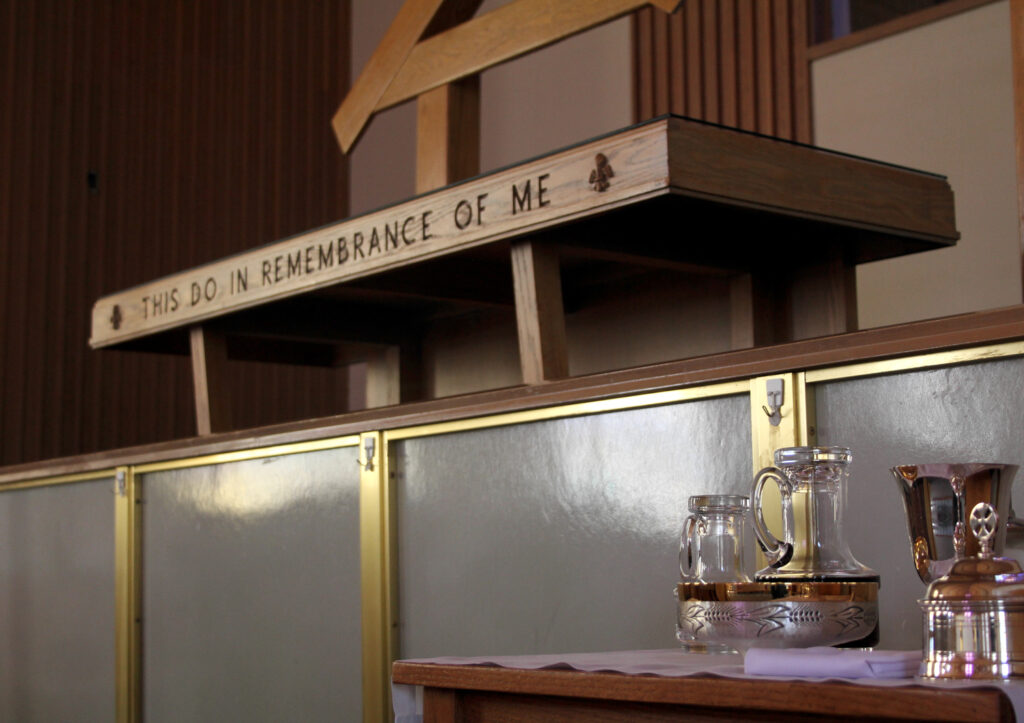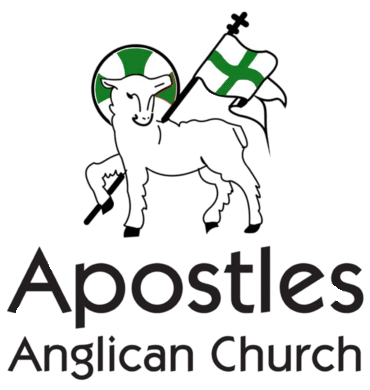Our Worship
If you have never visited an Anglican church, some of our practices during the worship service might seem foreign—but we’re here to help you however we can. We desire that you would be able to experience the presence of God while you are with us and many of the elements of our worship have been passed down during the history of the Church to help our hearts, minds, and bodies focus on the reality of God’s presence with us.
You can attend our 8:30am service on Sundays for a more Traditional service (with organ and hymns). Our 10:55am service is more Contemporary in style. You can also visit us for our 9:45am Discipleship Hour.

The Worship Guide: When you enter the church you can pick up a booklet that contains all the different parts of the liturgy (the formula of worship) for the service. The handout will lead you through all the prayers, readings, songs, and announcements for the day.
There are many parts to our service, some of which are:
– The Lessons: We believe that the public reading of God’s Word (the Bible) is vital during the gathering of his people, so we will read from the Old Testament, Psalms, and New Testament letters. The are also times when we will read collectively, joining as a church to proclaim the truth of Scripture out loud.
– The Gospel: We show distinct honor to the four books (Matthew, Mark, Luke, and John) that record the details and teachings from Christ’s earthly life. Every Sunday we have a reading from the Gospels, proclaiming to all present the words of utmost importance—those that testify of Jesus’ life, death, resurrection, and ascension.
– The Homily: A sermon, generally related to the Gospel reading, will be shared. This is a time for hearing practical suggestions from Scripture, for guidance in living a Christian life, and for lessons on renewed intimacy with our Creator.
– The Creed: We proudly testify of our faith every Sunday, using Creeds passed down from the earliest Christians that, themselves, aspire to declare the wondrous richness of the faith we profess.
– Prayers of the People: We join together in praying for each other, our local church, the global Church, our nation, and any needs of the hour that arise.
– The Peace: Jesus commanded us to live at peace with all men. Therefore, we take time during the service to greet each other with the blessing of God’s peace — making real, even in a handshake, the reconciliation of all people in Christ.
– The Offering: Scripture says that “every good and perfect gift is from above” and Jesus said “it is more blessed to give than to receive” so we believe that the offering of our earthly treasure to the mission of the local and global church is a small way that we can offer our whole selves to making a reality on Earth as it is in Heaven.
The Eucharist: The Lord’s Supper is the most important part of our worship because through the Sacrament we commune with Jesus and receive his grace. We welcome any baptized believer to partake of the bread and wine.
When you come to the front, you will kneel at the altar and receive the bread in your cupped hands. You can eat it at that time, or wait until the cup comes to you and dip it in. We use wine in our service—if you have any reservations about accepting alcohol, you may still receive the bread and thus full communion. If you are not a believer or not taking communion, you may still come to the altar and kneel — just cross your arms over your chest and we would be delighted to say a blessing over you.
Signs of the Cross, Kneeling, and Bowing: We believe in using our whole bodies during worship in ways that “remind” our soul of spiritual realities. We kneel when praying or confessing because it is a posture of humility. When the cross processes and recesses from the sanctuary, we bow in reverence to Christ, and do this likewise before the reading of the Gospel. Whenever the Trinity (Father, Son, and Holy Spirit) is invoked by name and after receiving communion, we cross ourselves to remember that we are united to that Holy relationship through Christ’s sacrifice. These actions are not required, but many find them valuable to center their hearts and minds on the words they are hearing, the things they are seeing, and the worship in which they are participating.
